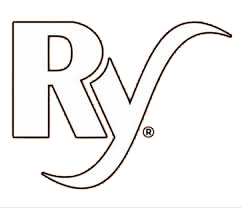What to do in a Plumbing Emergency

What should I do if I find a leak?
First of all, don’t panic! If you’re unsure of what to do, you can always phone an emergency plumber. Kingston has a wide range, but here at RyGas, we provide a great and speedy service in emergencies.
Before you phone a plumber, determine whether the leak is constant or intermittent. If it’s a large and constant leak, phone an emergency plumber and turn off your stopcock until they arrive (if you’re in a flat this may be in the communal building).
If it’s intermittent, try to determine what could have caused it (such as running a tap or the shower) so you can avoid this before a plumber arrives. Try to contain the leak as much as possible because certain heating systems, such as combination boilers, will eventually drain out. Relieve ceiling pressure by making a small hole and putting a bucket underneath to catch the water. This will minimise the strain on the plaster and hopefully avoid a potential collapse.
How can I resolve my issue as quickly and effectively as possible?
Always phone a plumber, even for minor leaks, as a damaged pipe can quickly become worse due to the constant pressure on weakened areas.
If you are unsure how to isolate your water supply or contain the leak, you should call an emergency plumber. Kingston is home to many great plumbing companies, including us here at RyGas! So for any questions, concerns or emergencies, simply get in touch.
If you have managed to contain the leak, try to identify what is causing it. This means you can pass on as much information to the plumber as possible so that he/she can come prepared with the correct parts and components. The more information you give, the quicker we can repair the issue.
If your leak has caused damage, you may want to think about claiming on your home insurance. However, this is not always the most cost-effective way forward, so find out what the insurance company covers first.
What should I do if I live in a flat?
If you report a leak in a flat or joint building, please first ensure we can have access to your neighbour as this avoids a wasted visit by the emergency plumber. Although the leak might be coming into your property, we won’t be able to diagnose or fix anything if we can’t access all of the pipework. It is important for us to rule out all possibilities and advise you on the most cost-effective and least disruptive repair.
What are the main causes of leaks?
Mains water pipes and central heating pipes – Leaks in these pipes can be damaging because of the high and constant water pressure so it will need to be isolated straight away. Remember, you can call RyGas for a speedy response if you need an emergency plumber in Kingston.
Waste pipes – These can cause bad leaks following the use of baths, toilets or taps but the leak may not be constant. Check under your bath, sink units, basins and around toilets to see if you can identify the source.
Silicone and grout issues – This is a common cause of intermittent leaks below bathrooms and can vary in severity. To test if this is the main cause, run your shower head over the silicone/grouted area and observe for water at the leak site. You can also check for any gaps or obvious damage.
Radiators – These are also a common cause of leaks when in disrepair, and leaking can occur from radiator valves.
Cylinders and tanks – A crack in a tank can be very damaging due to the amount of water it stores. If you see even a small leak from a cylinder or tank you should phone an emergency plumber. Kingston may be home to people of many talents but we would always recommend leaving plumbing to the experts!
Can I avoid leaks?
Unfortunately, most leaks are hard to predict but there are some steps you can take:
- Make sure the condition of visible pipework and components is good.
- Modernise your plumbing where necessary.
- Ensure minimal disruption to areas with plumbing components and waste pipes.
- For plumbing works, always use a reputable company and use good quality components and fittings, fitted to regulations.
- If you are purchasing a new property, have a plumbing component inspection carried out prior to the purchase.


